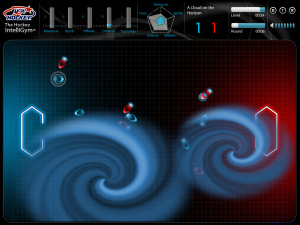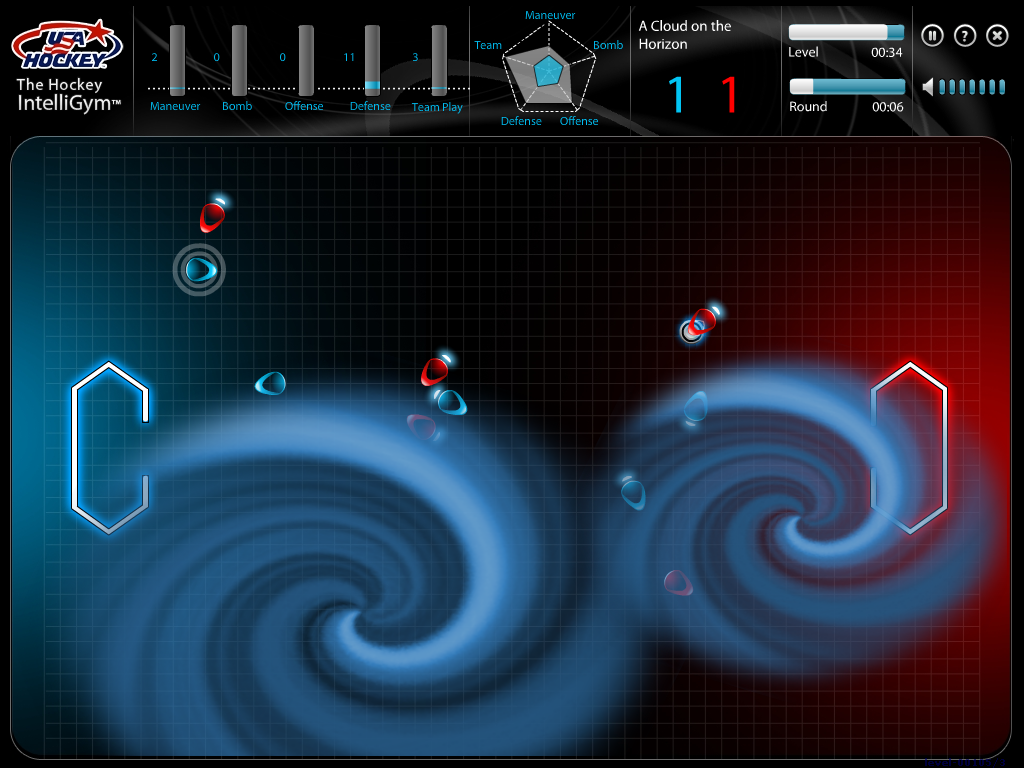
When confronted with the opportunity to improve his hockey team’s overall performance with the help of an online computer program, Stingers head coach Kevin Figsby could not refuse.
In a conversation with Roger Grillo and Kevin McLaughlin of USA Hockey, Figsby was informed of the Hockey IntelliGym, an online program which uses cognitive simulation technology to improve players’ performance in team sports.
“When I looked at the opportunity that it presented and I looked at the track record, it was something that fit where I saw our program moving in over the next three years,” said Figsby, who has been at the helm of the men’s team for 12 years.
Aware that USA Hockey’s national under-18 team was reaping major benefits — 30 per cent increase in goal output — from its use of Applied Cognitive Engineering’s software, IntelliGym, Figsby decided his scoring-starved Stingers (56 goals in 22 games; second worst in OUA) needed the online program.
In late October the Concordia Stingers men’s hockey team (6-14-3) became Canada’s first sports team to use the technology that aids players in developing hockey sense.
“The bonus to this is it’s a computer game,” said Figsby. “If you’re going to teach your players anything that’s off-ice from a cognitive development perspective, you may as well have fun with it.”
According to Figsby, a number of players have become very enthusiastic about the program, going over the required weekly regimen; that is, two weekly sessions of 30 minutes.
Corey Garland, the team’s assistant captain, is among the players who have developed a fun obsession with the program.
“It’s a lot of fun,” said Garland. “It is very addictive, but it does help with my game.”
And Figsby doesn’t mind his excessive usage of IntelliGym.
“What I’m seeing is that [Garland] is doing things with the puck he never did before,” said Figsby. “Is he scoring more? No, but is he handling the puck better, making better decisions. Is he creating more scoring opportunities? Yes, without a doubt.”
As for the rest of team, players have been receptive but, like in academia, some wait until the last minute to complete their assignments. As such, Figsby has noted a direct correlation between the team’s most recent goal scorers and their activity on IntelliGym, as well as the “guys who are struggling with the puck and how long they’ve been on and off IntelliGym.”
While it’s still too early to determine IntelliGym’s impact on the team’s overall play, Figsby sees the value in the product for years to come. “It’ll have a much greater impact next year just because of the learning phase and for guys to include it in their routines,” said Figsby.
According to Danny Dankner, CEO for Applied Cognitive Engineering, the Stingers have yet to reach a stage in their training to which any improvement in their overall game can be accurately assessed. Moreover, players should show significant on-ice improvement after eight to 10 training sessions.
“In the case of Concordia, many of the players have not completed this initial phase yet,” said Dankner.
The IntelliGym technology, a computer-based cognitive simulator, is based on a concept designed and developed by the Defense Advanced Research Projects Agency for Air Force pilots. DARPA successfully trained pilots to anticipate challenges in flight and found that flight performance had increased by 30 per cent.
To date IntelliGym’s been used for basketball and hockey players, to help them learn to anticipate and memorize patterns.
The Stingers are no longer the only Canadian sports team using the program. The Ontario Hockey League’s Niagara IceDogs started using IntelliGym in December.




